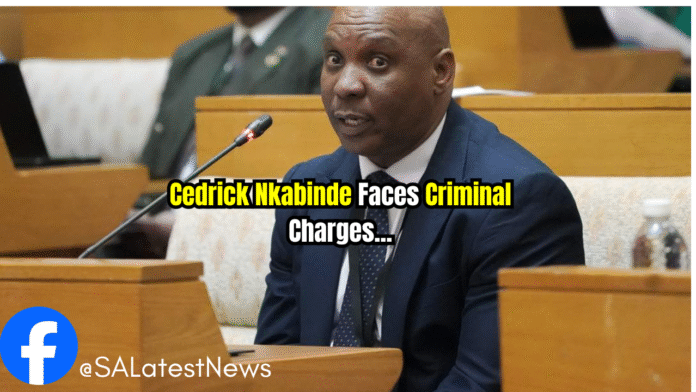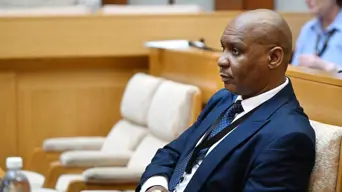Nkabinde Returns to Face Police Corruption Probe After Inconsistencies Emerge
Cedric Nkabinde, the Chief of Staff for suspended Police Minister Senzo Mchunu, is set to reappear before the parliamentary ad hoc committee investigating police corruption today. This follows a premature end to his previous hearing last week, triggered by significant inconsistencies between his evidence and his sworn statement.
Members of Parliament (MPs) adjourned Nkabinde's hearing on Thursday after identifying discrepancies in the dates he provided. These dates were crucial, as they pertained to his initial contact with Brown Mogotsi, a businessman mired in controversy, and to Senzo Mchunu's travel schedule following his appointment as police minister. The committee deemed these inconsistencies serious enough to halt proceedings and request further clarification.
Adding another layer to the complexities surrounding the case, Nkabinde had previously informed the committee about his close working relationship with Nhlanhla Mkhwanazi, the KwaZulu-Natal (KZN) police commissioner. This revelation has prompted further scrutiny of the relationships and potential conflicts of interest within the KZN police force.
The ad hoc committee is tasked with unravelling the intricate web of corruption allegations that have plagued the South African Police Service (SAPS). Nkabinde's role as a key advisor to a high-ranking official places him in a position where his testimony is considered vital to the investigation. The committee is particularly interested in establishing whether Nkabinde was aware of, or involved in, any corrupt activities during his tenure.
The pressure on Nkabinde intensified after last week's hearing. Evidence leader Norman Arendse addressed the committee last night, highlighting the emergence of a new, supplementary statement from Nkabinde. Arendse expressed concern that this new statement differed from the original document submitted to the committee.
"I would request to you that members bring the original Nkabinde statement," Arendse stated. "This evening, while we were sitting here, we received what they now call a supplementary statement, which is not the same." This unexpected development has further complicated the proceedings and raised questions about the accuracy and reliability of the information being presented to the committee.
Prior to Nkabinde's initial appearance, the committee heard testimony from Mary De Haas, a KZN-based crime activist. De Haas faced intense questioning regarding letters she had written to Mchunu, in which she urged him to disband the political killings task team (PKTT). The PKTT was established to investigate politically motivated violence in the region, but De Haas had raised concerns about its effectiveness and potential bias. Her testimony provided a broader context to the issues of police corruption and political interference that the committee is grappling with.
The committee's work is set against a backdrop of growing public concern about the integrity of the SAPS. Allegations of corruption, mismanagement, and political interference have eroded public trust in the police force, making the committee's investigation all the more critical. The outcome of the investigation could have far-reaching consequences for the individuals involved, as well as for the future of policing in South Africa.
Following Nkabinde's reappearance today, the committee is scheduled to hear from General Molefe Fani, the police head of procurement, on Thursday. General Fani's testimony is expected to shed light on the SAPS's procurement processes and whether these processes have been vulnerable to corruption or abuse. The procurement of goods and services within the police force has long been identified as a potential area for illicit activity, and the committee will be keen to examine the controls and oversight mechanisms in place.
The ad hoc committee's investigation is a complex and multifaceted undertaking, involving numerous witnesses, documents, and lines of inquiry. The committee members face the daunting task of sifting through the evidence, identifying credible information, and making recommendations for action. The stakes are high, and the outcome of the investigation will be closely watched by the public, the media, and the political establishment. The focus remains sharply on Nkabinde as he returns to face the committee, with many hoping his testimony will provide clarity and advance the pursuit of truth in this critical investigation.

Follow Us on Twitter












